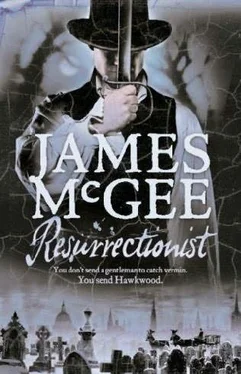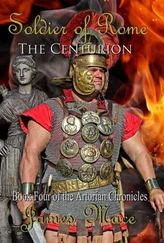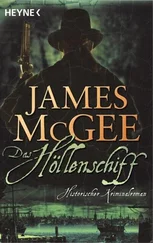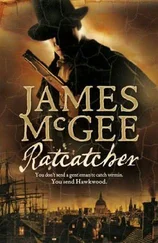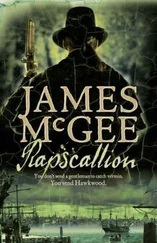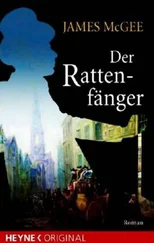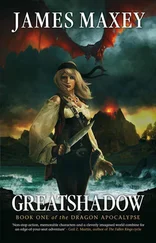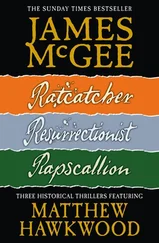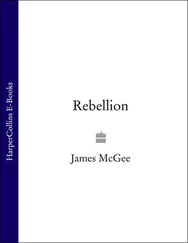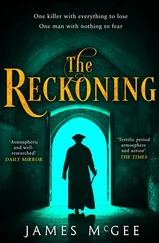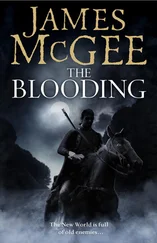James McGee - Resurrectionist
Здесь есть возможность читать онлайн «James McGee - Resurrectionist» — ознакомительный отрывок электронной книги совершенно бесплатно, а после прочтения отрывка купить полную версию. В некоторых случаях можно слушать аудио, скачать через торрент в формате fb2 и присутствует краткое содержание. Жанр: Исторический детектив, на английском языке. Описание произведения, (предисловие) а так же отзывы посетителей доступны на портале библиотеки ЛибКат.
- Название:Resurrectionist
- Автор:
- Жанр:
- Год:неизвестен
- ISBN:нет данных
- Рейтинг книги:4 / 5. Голосов: 1
-
Избранное:Добавить в избранное
- Отзывы:
-
Ваша оценка:
- 80
- 1
- 2
- 3
- 4
- 5
Resurrectionist: краткое содержание, описание и аннотация
Предлагаем к чтению аннотацию, описание, краткое содержание или предисловие (зависит от того, что написал сам автор книги «Resurrectionist»). Если вы не нашли необходимую информацию о книге — напишите в комментариях, мы постараемся отыскать её.
Resurrectionist — читать онлайн ознакомительный отрывок
Ниже представлен текст книги, разбитый по страницам. Система сохранения места последней прочитанной страницы, позволяет с удобством читать онлайн бесплатно книгу «Resurrectionist», без необходимости каждый раз заново искать на чём Вы остановились. Поставьте закладку, и сможете в любой момент перейти на страницу, на которой закончили чтение.
Интервал:
Закладка:
Sawney felt the shape of the cross in his waistcoat pocket and pressed his hand against his chest. Taking his mug, he headed back to his booth, realizing, as he retraced his steps, that he’d left the bag containing the night’s takings in full view. He cursed and shook his head at his forgetfulness, then looked towards the porters’ table, but the trio were now too ensconced with the whores to have noticed anything else. The anticipation of a quick fumble with a willing participant tended to make a person oblivious to his or her surroundings. Sawney could probably have driven a coach and four through the taproom door and they wouldn’t have been aware of anything except the wind from its passing.
Sawney sat down and took out the cross. He stared at it, turning it in his hand, and thought about the man who had given it to him. He was a strange one, this Dr Dodd. Curious, too, that he should have come in person rather than using Butler as an intermediary. Not that Sawney was going to complain. This way, he wouldn’t have to give Butler a cut for brokering the job. Not that he’d have paid out willingly, anyway. Not with Butler having stiffed him over the Chinaman. He reminded himself to have words with the porter about that one, the fly bastard. Foreign corpses weren’t dissimilar to cripples, pregnant women and children. They didn’t come on the open market that often and you could make good money from them, if you knew what you were doing. It dented Sawney’s pride to know that he could have earned a few extra guineas had he been more alert.
And while on the subject of money, a silver cross was a curious form of currency. Worth a fair bit, though. There’d be no problem getting a good price for it. Sawney wasn’t too sure about the doctor’s story, however; especially the bit about not having access to his accounts. What was all that about? He ran his finger over the hallmark once more. Sentimental value, my arse, he thought. Couldn’t be that sentimentally attached if he was prepared to barter it for a couple of day-old stiffs.
Sawney hawked up a mouthful of phlegm and spat it out on to the floor. Not that he was going to let it worry him. He wouldn’t have lost any sleep had the doctor confessed to smothering his grandmother and hocking her pearls to raise the necessary. As far as he was concerned, if someone wanted to pay him, who cared where the bloody money came from? And Dr Dodd had hinted there’d be more if he played his cards right. Sawney liked the sound of that. Sawney took another swig of brandy and grinned to himself. Things were looking up.
9
“Sometimes,” Maddie Teague sighed, through a cascade of auburn hair, “I think that’s all I am to you: a seamstress and washerwoman.”
“And a grand cook,” Hawkwood said. “Don’t forget that.”
The reward for that comment was a withering look and a sharp dig in the ribs. Hawkwood winced.
Maddie’s emerald-green eyes clouded with immediate concern. Raising herself on to one elbow, she ran her hand gently over the horizontal, four-inch ridge of scar tissue that marred the flesh two inches below Hawkwood’s ribcage. “It still hurts?”
“Only when I’m with company,” Hawkwood said, grinning. He braced himself for another dig, which was duly delivered, though with marginally less force than the first.
Before he could respond, Maddie lowered her head and placed her lips against another, smaller indentation high on his left shoulder.
“So many scars, Matthew,” she murmured softly.
She touched the scimitar-shaped cicatrice etched into the side of his chest below his left arm, then moved her hand to the uneven, crown-sized discoloration on his right shoulder. They were old wounds, like most of the scars on his body; the legacy of twenty years’ soldiering. Weapons of war had left their mark with varying degrees of severity, yet Hawkwood knew he was the fortunate one. He had survived. The bullet scar below his ribs and the knife wound on his left shoulder were the most recent; sustained during his time as a Runner. It was ironic, Hawkwood thought, despite having left soldiering behind, people were still intent on trying to kill him.
Maddie made no mention of the marks on his throat. She never had. Hawkwood recalled the first time they had lain together. Maddie had frowned and traced the bruising with her fingertips and Hawkwood had read the question in her eyes. Then, in a gesture that had astonished him, she had placed her finger against his lips to prevent him speaking, kissed his throat with great tenderness and, still without saying a word, lowered her head on to his chest. Since then, in the quiet moments, she had often enquired about the bullet wounds and the assorted nicks and cuts he carried, but at no time had she referred to the bruises on his neck. It was as if they had ceased to exist.
She kissed him again. “It’s getting late,” she whispered, nodding towards the window where the grey dawn light was trying to peer through a gap in the drapes. “And some of us have a business to run.”
Maddie Teague’s business was the Blackbird Inn. The tavern was situated in quiet seclusion close to the southern end of Water Lane, a short walk from Temple Gardens and King’s Bench Walk. Maddie was a widow and had inherited the Blackbird from her late husband, who’d bought the inn with profits he’d made as captain with the East India Company. The captain’s Will, however, had also included a number of debts. Hawkwood’s need for accommodation on his return to England had solved Maddie’s immediate money problems, reassured her creditors and provided breathing space for her to turn what had been a modest endeavour into a profitable one.
Like the marks on his neck, Maddie had not questioned the provenance of Hawkwood’s financial contributions. She was not unaware that military campaigning often provided opportunity for financial gain. Seamen benefited from prize money gained through the capture of enemy ships, she knew that from her late husband. But soldiering? Maddie presumed that similar opportunities arose. She was not so naive as to think army pay, even for an officer in the Rifles, was that generous. Presumably, during his two decades of service, cities had been sacked, forts plundered, baggage trains captured. But none of that mattered. Maddie Teague trusted Hawkwood. She’d trusted him from the day he’d walked through the door. She had accepted his offer of financial assistance — there had been no preset conditions other than an agreement giving Hawkwood use of two of the tavern’s back rooms — and not once had she questioned his motives. Later she had also come to accept and value his friendship.
And she knew the feeling was mutual, even if he’d never told her so. He didn’t have to.
Besides, it didn’t hurt, having a peace officer living on the premises.
When Hawkwood arrived back at the Blackbird, soaked, chilled and in severe need of a brandy, dry clothes and a warm bed, he had not been surprised to find that Maddie was still working. The Blackbird, like most of the city’s drinking establishments, kept long hours. To its regular clientele — lawyers, for the most part, with a smattering of clergy thrown in for good measure — it was a comfortable haven away from the pressures of court and congregation. Maddie provided an excellent menu, while the girls who waited on the tables were efficient and friendly without being overly familiar. And waiting on tables was the only service they provided. Maddie had a strict rule, rigorously enforced: no soliciting or propositioning on the premises. You wanted that kind of thing, you took your business elsewhere, Covent Garden or Haymarket. No exceptions, no second chance. The Blackbird was a respectable house and Maddie Teague intended it to remain that way.
Читать дальшеИнтервал:
Закладка:
Похожие книги на «Resurrectionist»
Представляем Вашему вниманию похожие книги на «Resurrectionist» списком для выбора. Мы отобрали схожую по названию и смыслу литературу в надежде предоставить читателям больше вариантов отыскать новые, интересные, ещё непрочитанные произведения.
Обсуждение, отзывы о книге «Resurrectionist» и просто собственные мнения читателей. Оставьте ваши комментарии, напишите, что Вы думаете о произведении, его смысле или главных героях. Укажите что конкретно понравилось, а что нет, и почему Вы так считаете.
